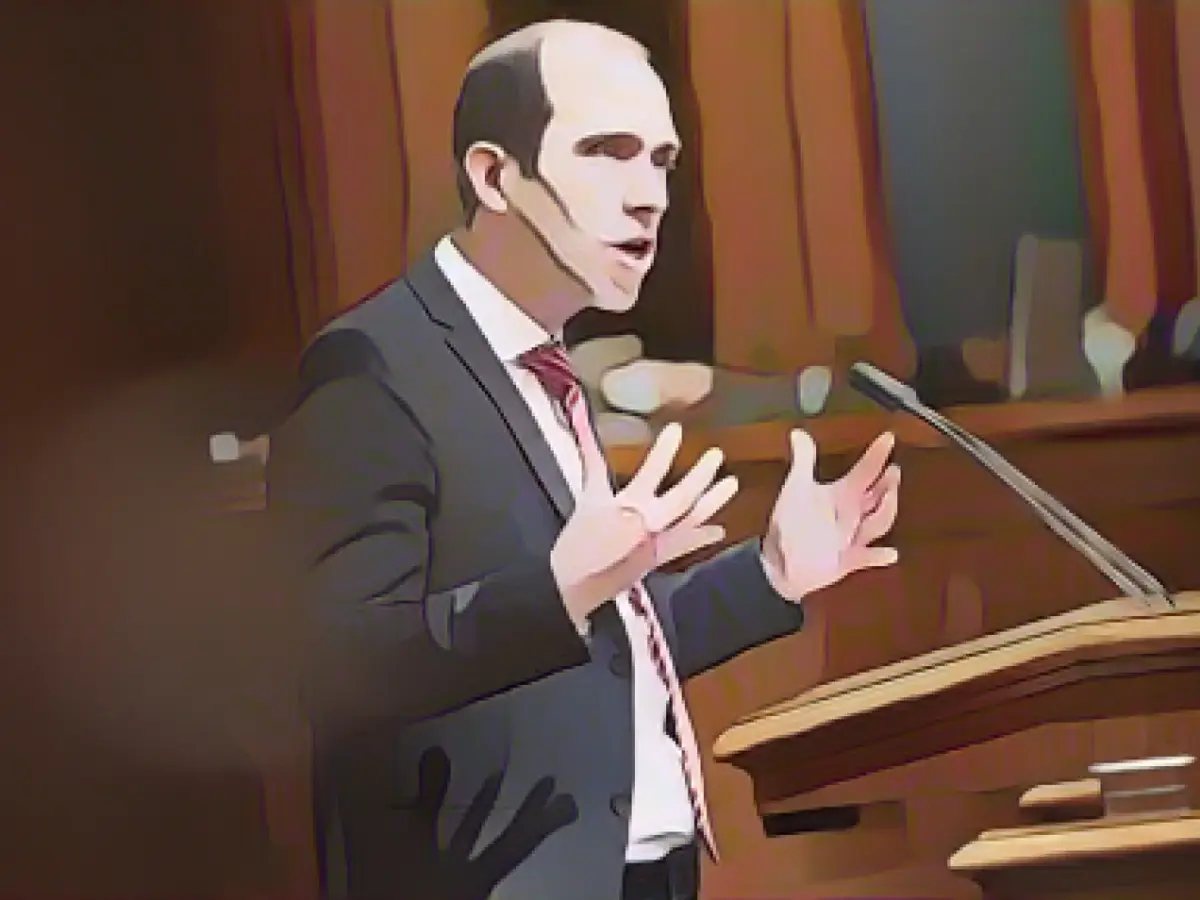Hamburg's Opposition Critiques Berlin's Budget Compromise: A Closer Look
The 2024 federal budget compromise reached by Berlin's ruling coalition has stirred controversy in Hamburg's parliament. While some parties, such as the CDU, Left Party, and AfD, lambasted the agreement as a "mess" or "failure," others, like the SPD, defended it as a necessary compromise.
Critics Allege Burden on Citizens
The CDU parliamentary group leader, Dennis Thering, accused the coalition of attempting to restructure its budget at the expense of citizens. Thering claimed that instead of making savings, the main aim was to generate more revenue, and the drastic increase in the CO2 levy would place an even heavier burden on citizens and companies.
The Left Party and AfD Bite Back
David Stoop, the Left Party's budget expert, criticized the compromise, dubbing it a "failed calculation." According to Stoop, this compromise would affect struggling citizens in Hamburg, who suffer from financial difficulties, making their lives even more difficult. The AfD, on the other hand, called for the CO2 tax to be abolished and urged savings in escalating asylum costs, particularly in Hamburg.
FDP and SPD Stand Firm
The FDP and SPD in the Federal Government argued that necessary savings should be made while maintaining social and ecological goals, which garnered mixed reactions from various political parties in Hamburg. The SPD parliamentary group leader, Dirk Kienscherf, stated that while savings would be unavoidable, they must not jeopardize progress in forward-thinking projects and social cohesion.
Enrichment Data:
- Debt Brake Mechanism: The debt brake, introduced in 2009, imposes limitations on the annual federal deficit and prohibits federal states from taking on new net debt. Its impact on public spending and investment has been a topic of debate, as critics argue that it hinders essential expenditures, particularly in areas like infrastructure and social welfare.
- Public Investment Levels: Germany's public investment at 2–3% of GDP has been relatively low compared to other countries in the region. Critics propose that Germany should allocate over €100 billion annually to compensate for years of underfunding.
- Social Welfare Policies: The SPD and Greens advocate for maintaining or increasing social welfare policies, such as the citizen’s allowance, while the CDU/CSU, FDP, and AfD support reducing or eliminating certain benefits.
- Special Funds and Budget Maneuvers: The SPD and Greens have used special funds to avoid conflicts over spending, which has been challenged in the Constitutional Court. The misuse of global unallocated funds also contributed to political tensions.
- Economic Impact: Some argue that austerity policies could deepen the economic crisis, and that Germany's lower public debt of approximately 63% of GDP still leaves room for substantial borrowing under new EU fiscal rules.
- Political Friction: The conflicting approaches to addressing economic challenges led to the collapse of the ruling coalition in November 2024, with the inability to reach a consensus on the budget and the debt brake being a major factor.
- Election Manifestos and Future Coalitions: Reform proposals, such as easing the debt brake's restrictions and excluding investments from its limits, could shape the political landscape in future coalition negotiations.
The debate surrounding Berlin's budget compromise highlights the deep-seated disagreements between political parties in Germany regarding financial management, investment, and social welfare policies. Ultimately, the impact of these decisions on citizens and the overall welfare of the country will be closely watched in the coming years.








